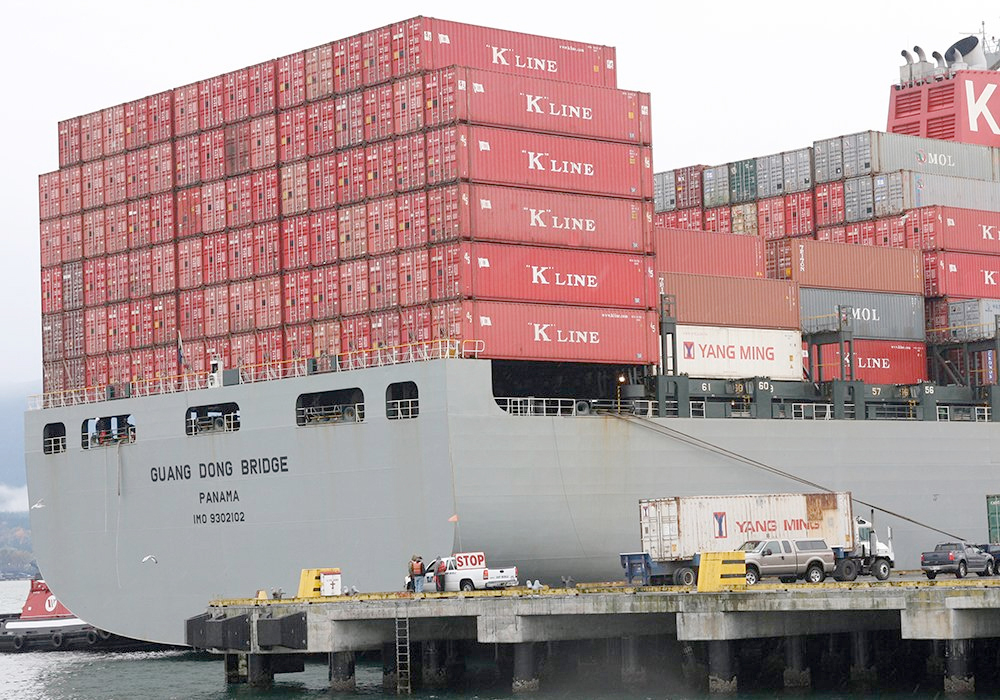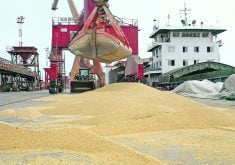U.S. says negotiations have produced more results in the last year than previous reform efforts achieved in decades
SASKATOON — The World Trade Organization is making big strides on dispute settlement reform.
U.S. Trade Representative Katherine Tai praised the WTO following its Thirteenth Ministerial Conference (MC13) held in February.
Related stories:
“The United States applauds the significant amount of work done on dispute settlement reform and recognizes that additional efforts are needed to finish the work we set out to do at MC12,” she said in a March 3 news release.
Read Also

Saskatchewan throne speech promises strong economy
Saskatchewan’s legislative agenda for the coming year will focus on meeting the challenges of new world trading relationships, said the speech from the throne.
That is a significant vote of confidence from the country that brought the WTO’s dispute settlement process to its knees in 2019 when it refused to appoint new Appellate Body members.
Tai said negotiations have produced more results in the last year than previous reform efforts achieved in decades.
“This is precisely because members have worked to identify shared interests and build convergence in a collaborative way,” she said.
“Members are identifying new ideas and improvements that can help all of us more effectively resolve disputes and make the system more accessible at the same time.”
The WTO pledged at the MC12 meeting in 2022 to have a well-functioning dispute settlement system in place by 2024.
Soy Canada executive director Brian Innes said the WTO’s system is an integral part of international trading with 75 percent of world trade taking place under WTO rules.
He balks at the suggestion in some reports that it is a dying institution, noting that two new members joined the WTO at MC13, and approximately 30 remain in the queue. He also noted that no country has ever left the organization.
Innes said it is a vital organization for a major exporting nation such as Canada.
“We benefit a lot by having rules that apply to everybody,” he said.
“There’s a suite of tools that continue to help farmers.”
Innes believes the WTO played a vital role in resolving Canada’s canola dispute with China despite not having a functioning Appellate Body in place. It also helped resolve Australia’s barley dispute with China.
Refereeing disputes is one of the core activities of the WTO. The organization has issued more than 350 dispute settlement decisions in 21 years.
However, the WTO’s dispute settlement system was in dire need of reform, with a large majority of delegations identifying that as a top priority, according to a recent WTO MC13 briefing note.
The system is still functioning. Ten new disputes have been brought forward since MC12, and six new panels have been established by the Dispute Settlement Body.
The problem is that there is no way to appeal decisions, so 31 panel reports have been “appealed into the void” since the Appellate Body stopped functioning in 2019, according to the briefing note.
Marco Molina, Guatemala’s deputy permanent representative to the WTO, has been convening an informal negotiating process with members since February 2023.
He has seen more than 70 proposals for reform on how to resolve disputes, simplify procedures and make the process less costly and more transparent, accountable and accessible to developing and least developed country members.
Many important issues have been hashed out, but differences have not yet been resolved surrounding the appellate or second-tier review of WTO decisions.
“We are approaching the conclusion of this process, though some issues still warrant further discussion and attention,” Molina said in a December 2023 WTO press release.
“The finish line is within reach.”
















